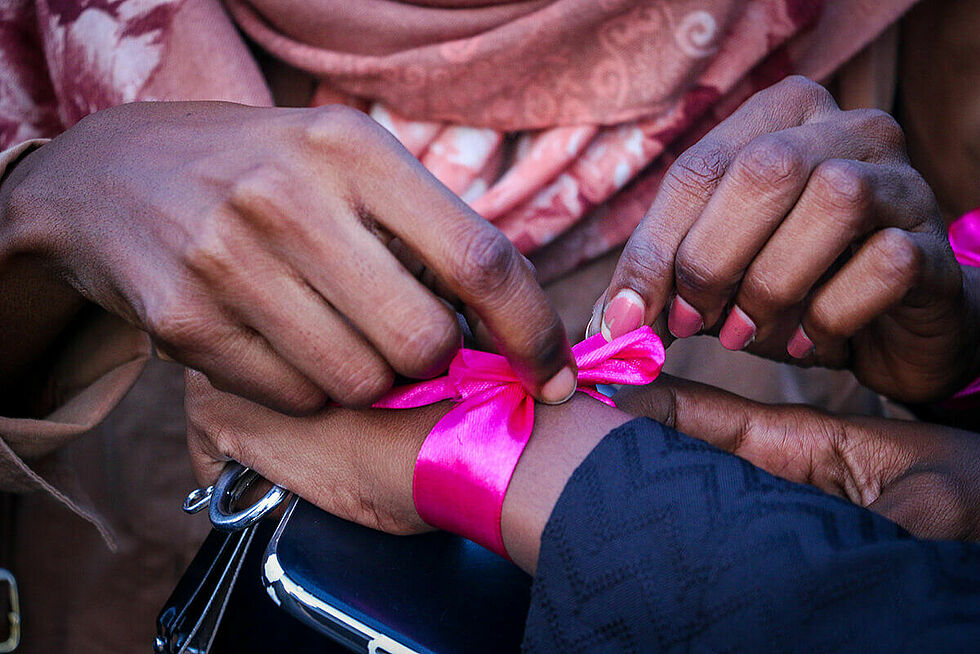Youth can lead by building international solidarity
From early on in her work, Seren Selvin Korkmaz has been building bridges. She is a Turkish doctoral researcher at the Stockholm University Institute for Turkish Studies and alumnus of New Ways, New Processes, a year-long youth leadership programme offered by Friedrich-Ebert-Stiftung.
These days she focuses on bridging civil engagement, academia and public policy through her ongoing doctoral research on programmes and strategies applied by social movements of the Left in Turkey and globally and between countries as co-founder and executive director of the Istanbul Political Research Institute (IstanPol), a non-government organization led by young researchers to promote democracy and social development through policy research.
"I was in the early stages of my professional career, and I wanted to continue creating networks and develop my personal skills in leadership," Korkmaz explains in this written exchange with FES, stressing the importance of collaboration and solidarity to forge leadership skills and how a programme that harnesses both can help youth build a better society.
What made you apply for the programme New Pathways, New Processes? Why are these types of opportunities important for young people?
"I was following an academic career path and doing my PhD in political science but searching at the same time for a way to transform my academic knowledge for the public benefit. I could observe in activities by Friedrich-Ebert-Stiftung that this kind of transformation was possible. New Pathways, New Processes is a place where young activists from various backgrounds can socialize, collaborate and learn together during one year. Overcoming prejudices and conflicts [and] improving collaboration, they develop leadership skills. With 'leadership', I don’t mean [good] management of institutions and people. With 'leadership', I mean direction based on collaboration and solidarity. So, I believe that programmes like this one enable youth to contribute to the transformation in their own societies and in their own lives."
What did the programme change for you?
"I went to a university and worked in the same city, Istanbul, which set geographical limits for how far my networks can extend. As part of the programme, I had a chance to collaborate with peers from different parts of Turkey and expand my networks. Also, I had a chance to meet with prominent academics, politicians, NGO managers and journalists. The exchanges continued long after the programme ended. The first introductions facilitated by the programme helped with deepening those contacts and starting new collaborations.
PS: EUROPE, a Vienna-based non-government organization and IstanPol, the organization I currently work at joined hands with FES in Istanbul on a range of projects dealing with migrants’ perceptions, migrant children’s rights and also on the polarization of the political landscape in Turkey. IstanPol continues to develop projects with FES on social and state transformation and conflict resolution in Turkey.
The programme also triggered my interest in active politics. During the last general elections in Turkey, I ran for a seat in the parliament as candidate for the social democrat leaning party of Turkey, the Republican People's Party (CHP)."
You are also co-founder of the Istanbul Political Research Institute. Why was engaging youth important for its genesis?
"IstanPol was born as a response by a group of young academics to what is happening with freedom of speech and academic liberties in Turkey. It was also a response against an established academic practice disconnected from the concerns of everyday life. As young academics of Turkey, we believe that academic knowledge and practice shouldn’t be locked up in an ivory tower.
To this end, the group behind IstanPol, as young scholars, promote the idea of the public intellectual and of dialogue among academics, independent researchers and representatives of civil society. In that sense, IstanPol gives us and other young scholars an opportunity to create a vibrant academic and social platform where university [and] independent scholars and youth cooperate to contribute to current debates."
How are international connections important for youth globally and in Turkey?
"The rise of populism, right-wing extremism, xenophobia, inequalities, precarity at work, global warming—these are problems experienced by millions of young people in different geographies of the world. No country can solve these systemic problems alone. Instead, we need to build international solidarity. Youth must nurture international connections in this globalized world on the basis of solidarity to be able to collaborate and contribute to solving global problems. This is relevant for youth in Turkey as elsewhere in the world."
###
For more information on New Ways, New Processes, contact Ilke Gökdemir, programme coordinator for youth and media freedom at the FES office in Istanbul. To learn about the work by FES in Turkey, visit our website and follow our Facebook fan page.
About FES Connect
Connecting people, in the spirit of social democracy, we source and share content in English from the German and international network of the Friedrich-Ebert-Stiftung.







